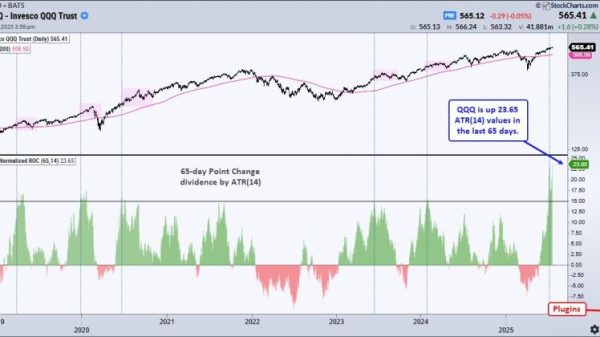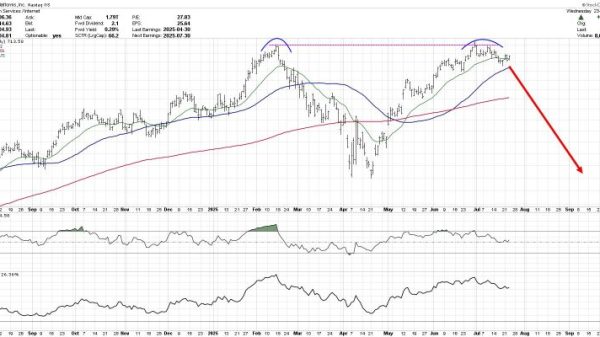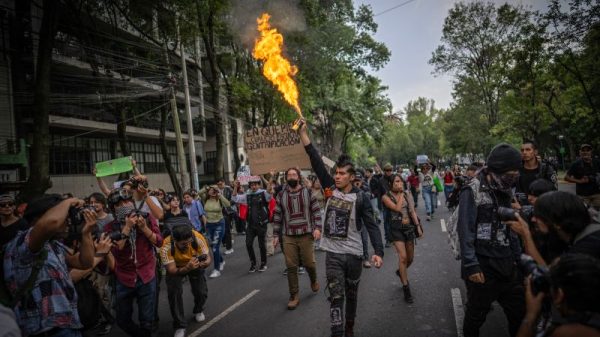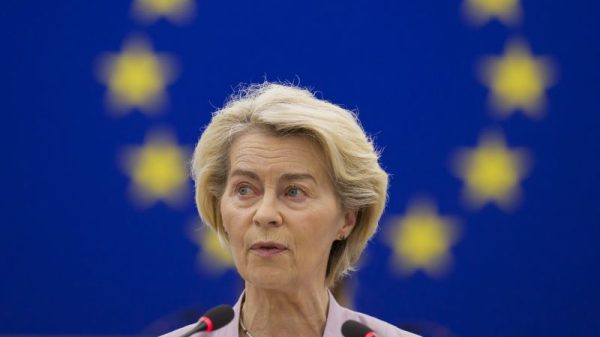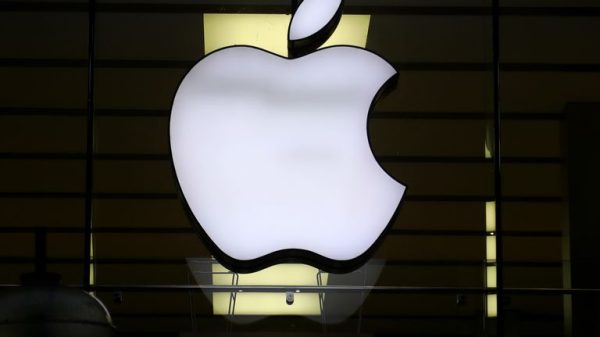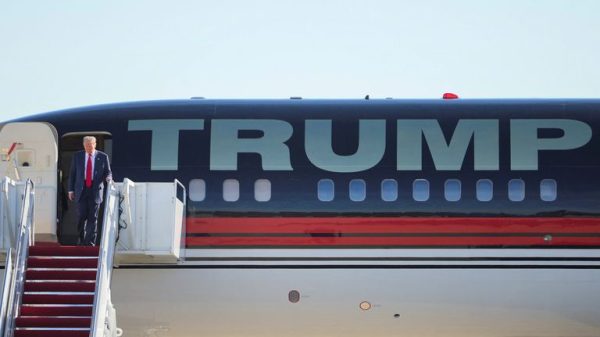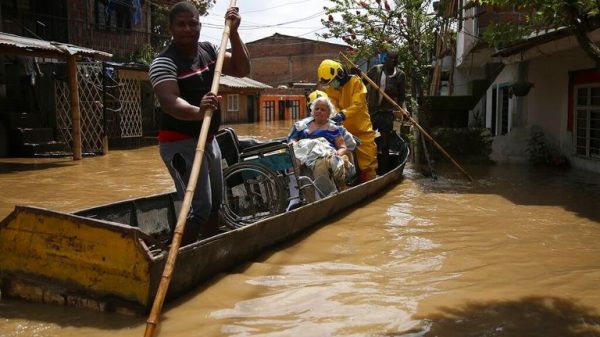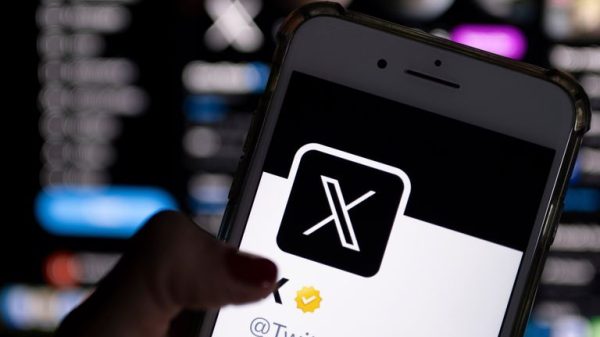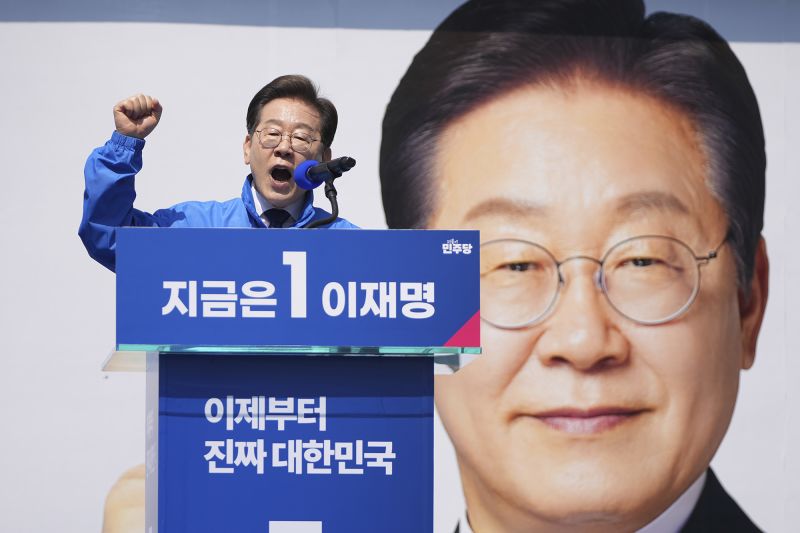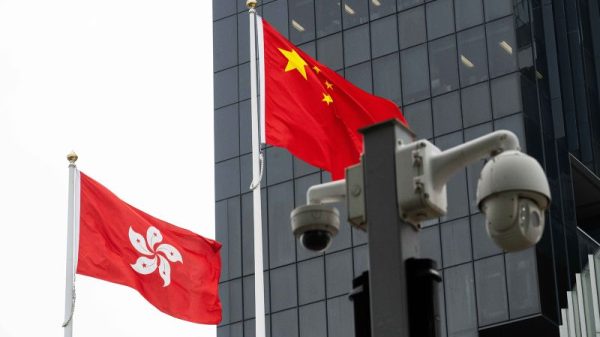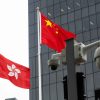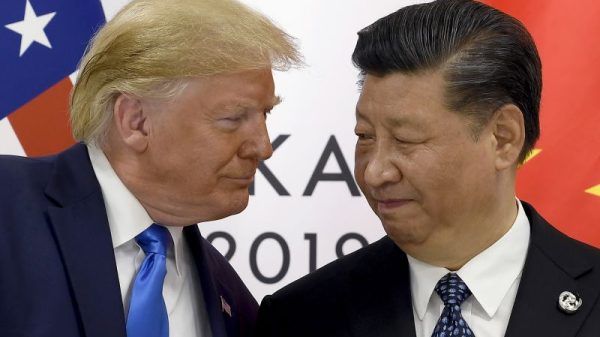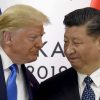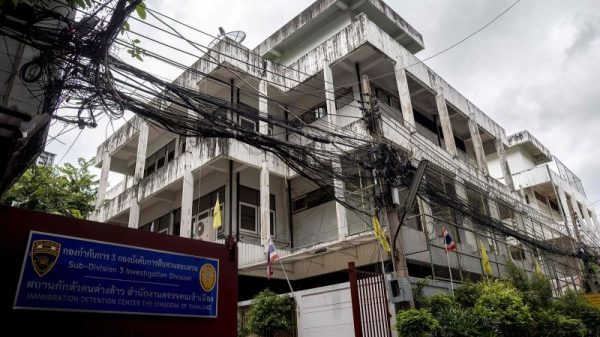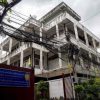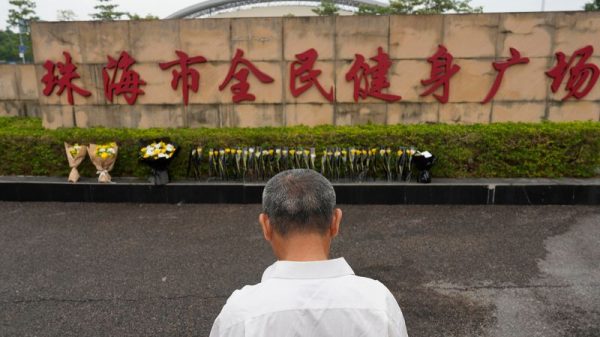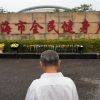South Korean opposition leader Lee Jae-myung is projected to be the new president following a snap election on Tuesday, according to an exit poll by Korean broadcasters, in a vote held exactly six months after the country’s previous leader declared martial law and plunged the nation into chaos.
The joint exit poll from KBS, MBC and SBS projects that Lee, 60, of the liberal Democratic Party, will win 51.7% of the vote. His main rival, Kim Moon-soo of the ruling conservative People Power Party, is projected to win 39.3% of the vote.
Official results are yet to be announced, but in previous elections the exit polling was closely in line with the final tally.
This election was closely watched and may now offer South Koreans some semblance of political stability after half a year of uncertainty and turmoil as the US ally and economic powerhouse navigated the aftermath of the martial law crisis.
It also comes as South Korea’s export-oriented economy grapples with global events like US President Donald Trump’s tariffs and a potential recession, all without a permanent leader at the helm.
Former President Yoon Suk Yeol declared martial law on December 3 last year in a short-lived power-grab that was halted after lawmakers pushed their way past soldiers into the legislature and voted to block the decree. Yoon was impeached soon after and formally removed from office in April.
In the months since that dramatic night, South Korea’s government has been in disarray, with a revolving door of interim leaders ahead of the snap election.
The acting leader of the Democratic Party, Park Chan-dae, said in an interview Tuesday night that the results of the exit poll reflect “people’s fiery judgement against the insurrection regime.”
Voter turnout reached 79.3%, according to the country’s National Election Commission.
Lee, a divisive figure within Korean politics, emerged early on as the frontrunner, despite recent legal challenges and allegations of corruption and abuse of power. If official results mirror the exit poll, he could be inaugurated as early as Wednesday – and faces a host of issues waiting to be tackled.
South Korea’s economy has stuttered in recent months, with rising costs of living and lower consumption. There are trade talks with the US over Trump’s tariffs, although no deal has been struck yet. There are also national challenges like the country’s aging society and falling birthrate, and geopolitical tensions with China and North Korea.
Lee’s rise to the top
A former underage factory worker from a poor family, Lee became a human rights lawyer before entering politics. He is a former mayor of Seongnam city, home to around 1 million people, and governor of Gyeonggi province, and most recently served as a lawmaker after narrowly losing to Yoon in the 2022 presidential election.
He survived an assassination attempt in January 2024 when a man stabbed him in the neck during a public event in the city of Busan. The injury required surgery, but was not life threatening, officials said at the time.
Later that year, he again made headlines on the night Yoon declared martial law and sent troops to parliament, becoming one of the lawmakers who rushed to the legislature and pushed past soldiers to hold an emergency vote to lift martial law. He livestreamed himself jumping over a fence to enter the building, in a viral video viewed tens of millions of times.
On the campaign trail, often speaking behind bulletproof glass and wearing a bulletproof vest, Lee promised political and economic reforms, including more controls on a president’s ability to declare martial law, and revising the constitution to allow two four-year presidential terms instead of the current single five-year term. He also supports boosting small businesses and growing the AI industry.
He has emphasized easing tensions on the Korean Peninsula while holding onto the longtime goal of denuclearizing North Korea. His aides say human rights will remain central to engagement with Pyongyang, including discussions on returning any living prisoners of war from the 1950-53 Korean War.
But Lee has also been embroiled in controversy, including several ongoing trials for alleged bribery and charges related to a property development scandal.
Separately, he was convicted of violating election law in another ongoing case that alleges he knowingly made a false statement during a debate in the last presidential campaign. The case has been sent to an appeals court.
Opponents accuse Lee of being a polarizing figure in South Korean politics, openly criticizing former President Yoon and blocking legislation proposed by Yoon’s government. Yoon even cited Lee’s Democratic Party and its undermining of the government’s budget bill as a reason for declaring martial law.
Diplomatic recalibration ahead
Lee’s team has pledged to reestablish trust with the US, which his advisers have said was weakened during the martial law crisis.
The Biden administration was caught off guard by the brief challenge to South Korea’s democracy, experts say, after the White House invested significant time to forge a landmark security partnership between Washington, Seoul and Tokyo.
Ahead of the election, Lee’s foreign policy adviser Wi Sunglac said the alliance with Washington would remain the “cornerstone” of South Korea’s diplomacy.
Seoul is also actively negotiating with the US over Trump’s tariffs, which include a 25% levy on South Korean exports and 25% duties on imports of automobiles and steel products. Trump has suggested more duties on semiconductors and pharmaceuticals – all predominant industries for South Korea’s economy.
Relations with China and Russia, strained in recent years, will be managed through “strategic engagement,” with Lee’s camp saying peace and security in the region require ongoing dialogue with both.





